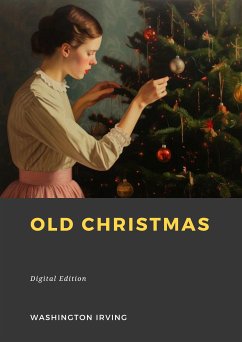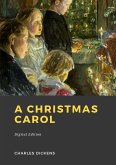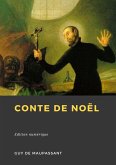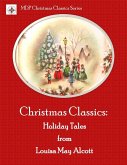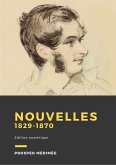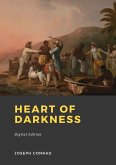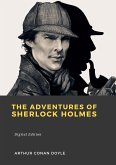"Old Christmas" by Washington Irving is a delightful exploration of the traditional English Christmas, taking readers on a nostalgic journey to the heart of 19th-century holiday celebrations. Renowned for his ability to capture the essence of early American and English culture, Irving, in this charming series of essays and sketches, brings to life the rich, festive traditions of a bygone era. Set in the English countryside, "Old Christmas" is a vivid portrayal of the warmth and cheer of the holiday season. Irving describes with affection and a keen eye for detail the customs and rituals that define an old-fashioned Christmas - from the lively gatherings and bountiful feasts to the singing of carols and decorating of homes. He paints a picture of a time when Christmas was a community-centered festival of joy, full of merriment and goodwill. The book's appeal lies in Irving's masterful storytelling and descriptive prowess, which transport readers to a simpler, more joyous time. His observations are both humorous and poignant, offering a glimpse into the social customs and familial bonds that the holiday season nurtures. "Old Christmas" is a celebration of tradition and a reminder of the enduring charm of Christmas festivities. Ideal for lovers of classic literature and those who yearn for the Christmases of yesteryear, "Old Christmas" is a heartwarming read that captures the spirit and conviviality of the season. It's a literary gem that rekindles the true essence of Christmas - a time of togetherness, reflection, and unabashed joy.
ABOUT THE AUTHOR
Washington Irving, born on April 3, 1783, in New York City, and died on November 28, 1859, was an American short story writer, essayist, biographer, and historian, widely regarded as the first American man of letters. He achieved international fame for his fictional works, notably "The Legend of Sleepy Hollow" and "Rip Van Winkle," both of which are among the earliest examples of American fiction with enduring popularity. Irving honed his craft in the early 19th century, a time when American literature was still in its infancy. His mastery of satire, folklore, and historical narrative brought a distinct voice to American writing. "The Sketch Book of Geoffrey Crayon, Gent.," a collection of 34 essays and short stories, included "The Legend of Sleepy Hollow" and "Rip Van Winkle," and is credited with introducing American folklore into European literary culture. Apart from his literary contributions, Irving served as the U.S. ambassador to Spain from 1842 to 1846. His biographies of George Washington and Christopher Columbus, along with his multi-volume "The Life of George Washington," remain significant historical works. Irving's legacy lies in his pioneering role in American literature, his inventive storytelling, and his ability to capture the imagination of readers across generations.
Dieser Download kann aus rechtlichen Gründen nur mit Rechnungsadresse in A, B, CY, D, EW, E, FIN, F, GR, IRL, I, L, M, NL, P, SLO, SK ausgeliefert werden.

